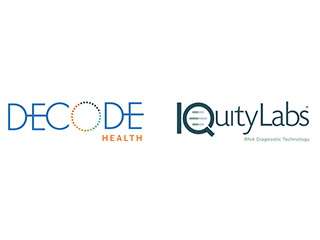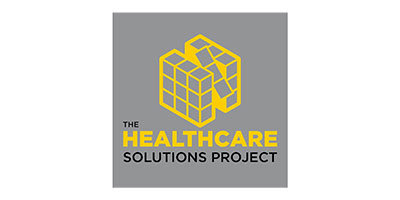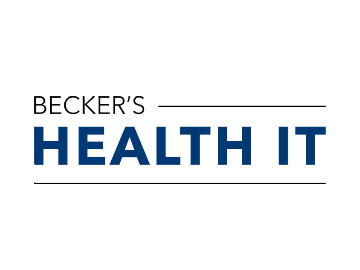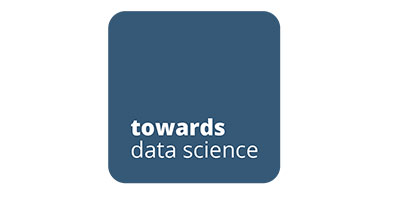
RNA Genomics: A Powerful Tool to Improve Population Health Management
Autoimmune diseases, such as multiple sclerosis (MS), ulcerative colitis, Crohn’s disease, and rheumatoid arthritis, are complex diseases that affect over four million people in the United States and cost the healthcare system over $90 billion [read more...]
Autoimmune diseases, such as multiple sclerosis (MS), ulcerative colitis, Crohn’s disease, and rheumatoid arthritis, are complex diseases that affect over four million people in the United States and cost the healthcare system over $90 billion annually. Autoimmune comorbidities present serious complications, increase hospitalization risks, and ultimately amplify the costs associated with managing these progressive illnesses. An early, accurate diagnosis combined with early treatment has significant cost-savings potential, estimated at greater than 20% for these diseases alone.
Many large organizations are seeking ways to realize the value of proactive care management. For example, Nashville-based Premise Health, a provider of primary care, occupational health, pharmacy and other services to large employers at more than 600 locations across the U.S., partnered with Mayo Clinic to create a Center of Excellence. The goal of this partnership is to increase access to care, improve outcomes and lower costs among Premise Health’s patient population. According to news reports, this collaboration will enhance the speed and accuracy of diagnosis and help ensure appropriate treatment, which will be especially beneficial for patients with high-cost, high-risk diseases. These objectives mirror Decode Health’s work in genomics and population health analytics building tools to predict and monitor patient outcomes that enable better disease management.
RNA as an Indicator of Disease
Many factors influence the “you” of yesterday, today, and tomorrow: genetics, social interactions, and physical environments just to name a few. Since diseases manifest and progress differently among patients, understanding the relationships among these multidimensional factors unlocks the opportunity to discover patterns that can improve patient outcomes. Tracking these patterns fuels enhanced prevention strategies, more effective diagnostics to detect and monitor disease, and selection of optimal treatments.
In the era of genomic medicine, it has become clear that a “one-size-fits-all” clinical care model is expensive, inefficient, and ineffective, especially for complex diseases. Increased use of genetic testing has demonstrated the power of genomics to deliver personalized medicine approaches. Identifying genes and the genetic variants associated with disease gives care teams and patients insight into current and future health risks so they can better understand patient health outcomes and more efficiently manage health decisions. For example, arming care providers and cancer patients with this type of information empowers them to work together to select appropriate chemotherapy treatments.
A complete copy of DNA is present in almost every cell of the human body. Depending on the tissue and certain external signals, DNA is expressed as RNA, a molecule responsible for regulating cell function. RNA genomics (“transcriptomics”) is increasingly used to provide a snapshot of cellular activity based on the external cues received from social, behavioral, and environmental conditions that are collectively called the social determinants of health (SDOH). Although individuals within a population have a different genetic makeup, these external factors that influence health and health outcomes often overlap. The integration and analysis of a population’s biological characteristics, genetic makeup, and SDOH factors provide a novel, dynamic, and robust platform to uncover risk factors that influence population health by capturing how cells and tissues within our body are communicating and regulating life’s critical processes. These analytics enhance the application of transcriptomics in genomic medicine and expand the ability of care teams to accurately diagnose complex diseases quickly. By implementing these novel methods in clinical practice, the personal, societal, and economic burden of complex diseases are reduced.
Predicting Risk Allows Proactive Care
Currently, fewer than 25% of providers utilize advanced decision support tools. Efficiently reaching a diagnosis can lower the onset of comorbidities and stabilize, prevent progression, or in some cases, induce disease remission. Achieving an early diagnosis is challenging as the tools to reach a definitive diagnosis, especially in the early stages, are not always available. Misdiagnosis or delayed diagnosis, resulting from unpredictable and varying clinical presentations and incorrect clinical decisions, can result in inappropriate or ineffective therapies and unnecessary morbidities. MS misdiagnosis rates are reported as high as 1 in 3 (33%) with patients failing to receive the correct diagnosis for up to ten years. Misdiagnosis is costly. In fact, researchers at Cedars Sinai estimated that in their study of 241 patients, unnecessary treatments given to the misdiagnosed MS patients cost nearly $10M.
Decode Health’s AI platform can predict disease onset, spotlight misdiagnosis and anticipate high-cost adverse events. Using an example from our past work with a care management organization managing 135,000+ patient lives, we identified undiagnosed, misdiagnosed and uncontrolled MS and Crohn’s disease patients. Decode identified $1.3M in potential savings in a single month and a misdiagnosis rate of ~22% across these two disease categories.
Over the course of a decade, the Decode team’s work has helped expedite and drive innovations in population health. For example, we are collaborating with a major pharmaceutical company to predict drug tolerability in elderly cancer patients. The advanced analytics developed through this partnership will support value-based care and new clinical decision support tools. These tools will enable providers to optimize treatment decisions, mitigate adverse effects and reduce hospitalizations.
Decode Health is committed to unlocking discoveries using genomic data, clinical data, and information that tracks the unique SDOH factors in communities. Decode delivers innovative solutions for care teams to predict and improve outcomes, develop targeted interventions and reduce the societal and economic burdens of complex disease.
The ramifications of continuing with the traditional methods of chronic disease management are dire. Healthcare innovation must be fueled by intra-industry collaboration. Decode’s AI platform contributes to the ever-evolving healthcare ecosystem, advancing essential innovation alongside its partners. Millions of lives can be improved, and billions of dollars saved by wide-scale utilization of the technological advancements that are available today.


















